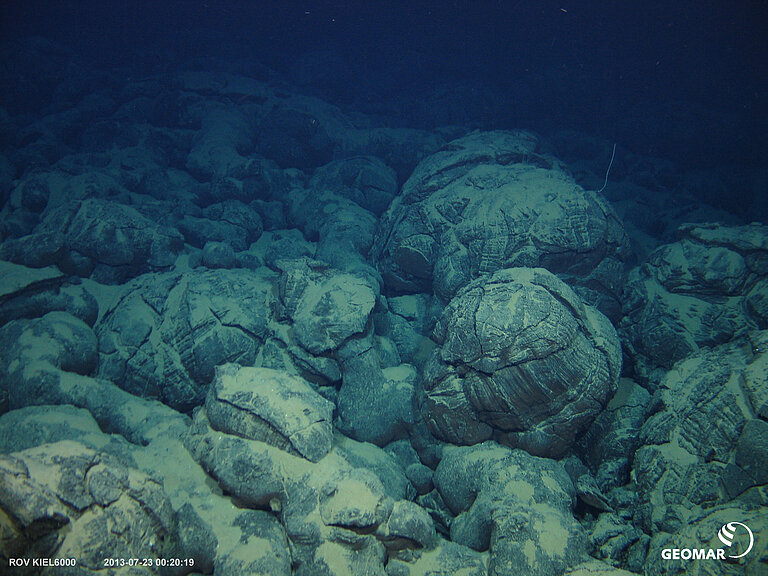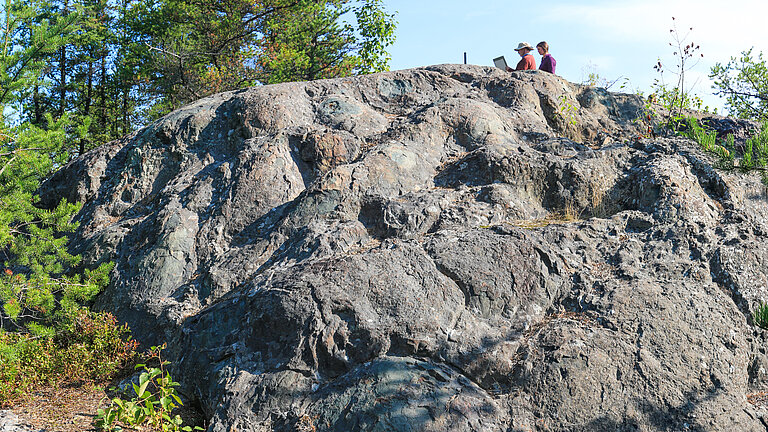EU Funds Doctoral Network from Finland to Italy
GEOMAR contributes to International Research Project on Volcanic Systems
The European Research Executive Agency (REA) has awarded one of its prestigious grants for Doctoral Networks (DN) to a multinational consortium of seven European universities and research institutions, led by the University of Helsinki. The grant amounts to €2.7 million over a period of three years. The DN programme is part of the Marie Skłodowska-Curie Actions (MSCA), the European Union's main funding programme for doctoral training and post-doctoral research training.
The partner institutions will collaborate on the FluxBEATS project (Fluxes at divergent plate Boundary Environments Analyzed in Time and Space), investigating geological and geochemical processes at volcanic systems both above and below water. This will include geological observations, state-of-the-art geochemical and biogeochemical analyses, as well as data and modelling from modern volcanic systems along mid-ocean ridges. Insights from the study of today’s seafloor will then be compared with corresponding geological sequences throughout Earth's history to provide robust assessments of quantitative changes over time.
Partners include the University of Helsinki (Finland), the University of Bergen (Norway), the GEOMAR Helmholtz Centre for Ocean Research Kiel (Germany), the University of Münster (Germany), Politecnico di Torino (Italy), Université Claude Bernard Lyon 1 (France), the Geological Survey of Finland, as well as academic and non-academic partners from across Europe.
Two of the ten individual projects within the network will be based at GEOMAR. Dr Philipp Brandl will lead the “Career Development” work package, while Professor Dr Sylvia Sander, head of the Marine Mineral Resources Research Group, Professor Dr Lars Rüpke, head of the Seafloor Modelling Group, and Dr Sven Petersen will supervise PhD projects.
Background: European Research Executive Agency
The European Research Executive Agency (REA) supports, on behalf of the European Commission, the promotion of research and innovation in the EU. It funds high-quality projects that generate new knowledge for society, particularly within the Horizon Europe programme. A key component of this programme is the Marie Skłodowska-Curie Actions (MSCA), named after the physicist and chemist of Polish origin. These actions aim to support researchers in working across countries and sectors, and in building international careers. The goal of doctoral networks is to provide excellent training to doctoral candidates, foster their creativity and innovation, and improve their prospects for long-term employment.

Recent pillow lavas from the seafloor around Vanuatu (Photo taken during SO229 with RV SONNE). Divergent plate boundaries are the sites of the fastest growing crust on Earth, but their interactions with the bio-, hydro- and atmosphere are only partially constrained. Photo: ROV team, GEOMAR.

About 2.7 billion years old pillow lavas (Abitibi Greenstone Belt, Canada): These rocks are largely undeformed and only slightly metamorphosed, making them a deep time analogue for studying elemental fluxes through time. Photo: P.A. Brandl.


